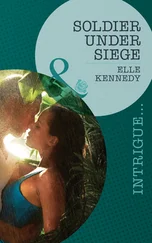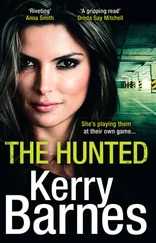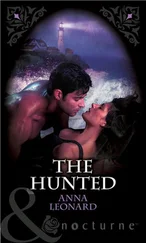“So when Russell died last year, you were the one who found him.”
She reached in her purse, found a pack of cigarettes, brought one out, and lit it, nodding. “Russell, he had always had a problem with drinking, but much more so after Terry. He went into town less and less. The house grew up around him, almost like it was swallowing him. He wasn’t even throwing out the bottles by the end.”
“So, there’s not, like, a death certificate or anything for Terry.”
She blew out smoke and looked at him.
“It’s not really any of mine,” he said, “but you didn’t report it to the police because, because, it seemed to you punishment was already served. A father killing his son, those circumstances, out here, the isolation, Terry’s illness.”
Her silences were artful. The way she had of making her point by not making any at all, letting your statements or assumptions stand on their own. She asked for information when she needed it but not anything beyond.
“We buried him next to Terry.” That was all she said.
“And, again, no marker?”
“It was just my brother and I. The res came up with enough for a pine box. We said we would do the burial there and they said okay.” She took another long pull on the cigarette. “I nailed another star to the tree.”
Sully considered all this for a second. “Might you have another shot of bourbon?”
She got up and poured it. He said thanks and sipped and sat back.
“So,” he said, “I’ll go with you on this. I’ll say Terry isn’t the shooter in Washington. That means there’s somebody locked up in D.C. who has assumed his identity, for whatever reason, which means he had to know of Terry, his situation. He had to look at least something like him. So the res, I’m guessing, is going to know, or have an idea-”
“Terry did not look particularly like he was from Indian Country. His mother was white, like I said. Russell’s father was half white. I have some whites in the woodpile, but not like that. Terry did not look like me. The man in the picture that I saw on television, in the paper, he looked like he was playing Indian to me.”
“So, so why didn’t anyone tell this to the feds, the police, the reporters?”
“Terry was, what did you call him? The Thing in the Dark? You could have shown people a picture of a werewolf and they would have said it was him. I was, as far as I know, the last person to see Terry alive, and that was nearly eight years ago. Some things are never known. The fate of Terry. The killer of your mother.”
He leaned back from the table and polished off the drink-she had a light thumb-and picked up his plate and glasses. He went to the sink and washed his glass and put it in the rack to dry. The light in the kitchen was a bare bulb. It was harsh. It was dark outside now, the moon coming up, low and full.
“Did you tell the federals this, the police?”
“No one asked.”
“But, I mean, they had to be throwing a pretty wide net. Even if they didn’t come through the woods there, somebody had to be knocking on every door in-”
“I was not home when they came. Two FBIs. My brother was, next door. He spoke for me. He said we barely knew Russell, much less Terry.”
“They believed him?”
“Why wouldn’t they?”
“I was just asking.”
“My brother, he is not one to ask a lot of questions.”
“What about the locals, though, the sheriff?”
“They don’t bother us. The sheriff, he and my brothers? Not a good combination.”
“And you didn’t go volunteering this because…” He hunched his shoulders, held up palms to the air, inviting a response, but not wanting to put words in her mouth.
She looked back at him. “Me and the federals, also not a good combination.”
Sully sat back down at the kitchen table. Jasper roused himself, stretched, came over and leaned against Sully’s leg. The dog’s ears had been clipped.
“So the wolves can’t get them?” he said, rubbing Jasper’s head, scratching behind the ears.
“Coyotes.”
“Which reminds me. I saw two of them, strung up from a fence by the heels, on the way out from town.”
“That’s Jim’s place. He believes, like a lot of people around here, that the coyotes can smell their own dead and avoid them.” She was looking in the refrigerator for something. The open door blocked his view of her. “He’s got chickens. When he gets a coyote, he strings it up.”
“You think it works?”
“I think Jim thinks it works.”
“You know who he is, though,” he said quietly. “The man in Washington. He stabbed the congressional rep from here in the eyes. Two knives. Well, ice picks. Like Terry, with the knives.”
He said it looking out the window.
She didn’t stir from the table, didn’t look over her shoulder at him.
“There was a family,” she said. “Whites. They lived several miles down this road, that you came up. County ten thirty-two. The house is just off the res. Kept to themselves, came, left, never stayed long. They had a boy, used to come up here with Terry in the summers. Terry and that boy, they’d be wading through the creek that runs through the woods there. They would come over and ask to ride the horses.”
“Did they look alike?”
“Thirty years ago? Some? Kind of. Dark hair. Black. Like yours. Same sort of build.” She shrugged. “I looked at the television, I thought about it.”
“You remember his name? This other boy?” He came back to the table now.
She stubbed out the smoke. “Thirty years.”
“Last? The family name?”
“Something with an H, maybe. Hill, Harris, Humphreys. Look, like I said.”
Jesus. Something with an H. Or maybe not. Something that sounded something like that. The number of times he’d been through this, how many interviews in how many places. Jimenez. Faris. Phillips. This was the time to push. Before he could get his lips around a re-formed question, she was pushing back her chair.
A ragged smoker’s cough and she was standing, not looking at him but across at the kitchen, the middle distance. “Well.”
His lips froze, midthought. The invitation to leave, the conversational kick in the shins, the end of the time I got for you and your questions. I gotta do these dishes, I gotta go to work, I gotta go see a man about a dog… Maybe he should have made more of a show of eating, knocking back the bourbon. The spaghetti, it was only half finished on his plate, his fork sticking up in the middle like a palm tree on a desert island.
When he stood, the floor creaking underfoot, he was surprised, standing next to her. She was leaner than he’d thought. Her lined face was reserved, it wasn’t harsh. Or maybe he was just reading that into it now. Maybe it had softened with the bourbon, on her face or in his eyes. Maybe, maybe he wasn’t reading her so well. You couldn’t, you know, turn your sensors on like a magic trick. People talking about their infallible bullshit meter, that was bullshit.
“Want me to help you with these?” Sweeping his right hand to the dishes, already reaching.
“No no. Jasper lives on leftovers. I’ll put the plates in the sink for later.”
She stepped back, indicating by doing so that he should go first.
He thanked her for the supper, the hospitality. She followed him and it seemed so quiet now, he was just becoming aware of that, every footfall drawing a response from the warped flooring. There had been no radio playing, and the hulking television in the living room, so old and so big he wouldn’t be surprised to find vacuum tubes in the back, lay dark and blank, dust on the screen. The recliner in front of the television. He had to weave around that. The door creaked when it swung open and out.
Читать дальше
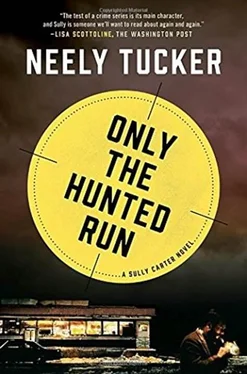

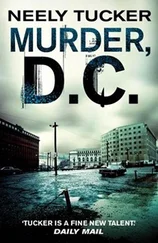




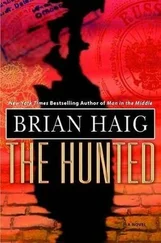
![Джон Макдональд - The Hunted [Short Story]](/books/433679/dzhon-makdonald-the-hunted-short-story-thumb.webp)
